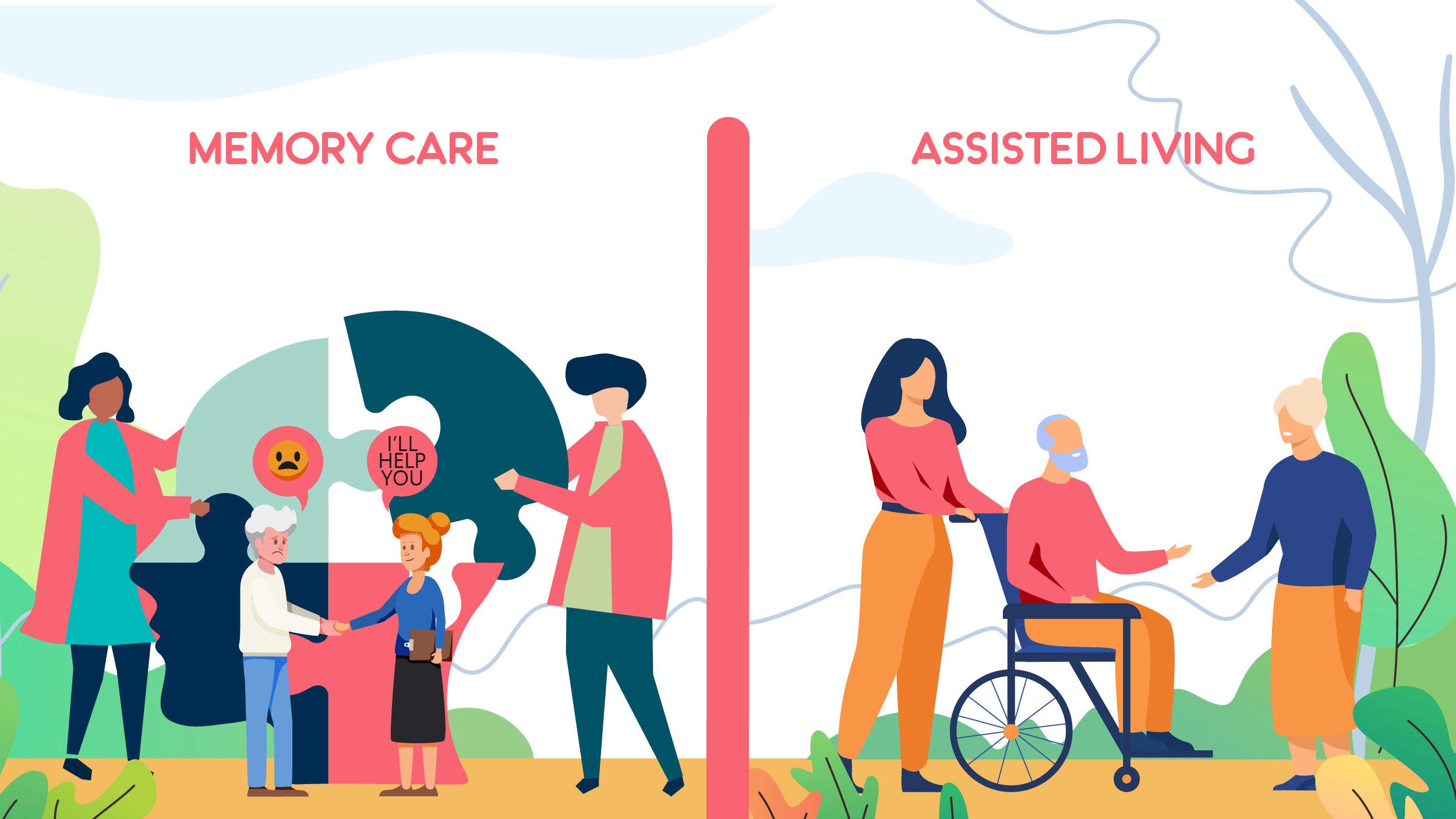Developing a Safe and Helpful Setting for Alzheimer's Care
The creation of a secure and supportive setting for individuals with Alzheimer's is vital in improving their high quality of life. This includes not only physical adaptations within the home, such as minimizing risks and incorporating familiar elements, yet likewise the implementation of organized regimens and purposeful tasks that accommodate their cognitive requirements. In addition, understanding the psychological and psychological dimensions of care can significantly influence their feeling of safety and connection. Checking out these multifaceted methods can expose crucial insights right into reliable caregiving strategies that might change the daily experiences of both patients and caretakers.
Comprehending Alzheimer's Demands
Frequently, people with Alzheimer's disease show a variety of needs that call for tailored approaches to care. As the problem progresses, cognitive decline manifests in various methods, influencing memory, reasoning, and even the ability to carry out everyday tasks. Caretakers have to acknowledge these developing demands to give appropriate support and make certain a better of life for those influenced.
One crucial aspect of recognizing Alzheimer's requirements is acknowledging the importance of routine and experience. People typically discover comfort in well-known patterns, which can lower stress and anxiety and complication. Caregivers must aim to develop organized day-to-day schedules that include significant activities lined up with the person's rate of interests and capacities.
In addition, efficient interaction is extremely important. People with Alzheimer's may have a hard time to reveal themselves or comprehend complex language. Caretakers need to employ straightforward, clear language, use non-verbal signs, and practice energetic paying attention to cultivate understanding and link.
Last but not least, social and psychological demands can not be forgotten. Supplying opportunities for social interaction and preserving partnerships can dramatically improve emotional health. Caretakers should motivate interaction in area tasks or family members gatherings, advertising a sense of belonging and function. Comprehending these varied requirements is crucial for creating a helpful treatment environment.
Creating a Safe Home
Developing a risk-free home for people with Alzheimer's condition is essential to minimizing dangers and promoting self-reliance. Ensure that paths are well-lit and clear, as correct illumination minimizes disorientation and improves movement.
Including adaptive attributes is also important. Set up grab bars in restrooms and near stairways, and take into consideration utilizing non-slip floor coverings in damp areas. In addition, making use of different colors for wall surfaces and floors can assist in distinguishing areas, aiding to alleviate confusion.
Familiarity is essential for individuals with Alzheimer's. Personalizing the setting with acquainted things and photographs can strengthen a feeling of belonging and safety - Alzheimers Care Charlotte. It is additionally useful to have actually a marked area for day-to-day activities, such as reading or crafting, which can offer structure to their day
Last but not least, carrying out a secure outdoor space enables secure expedition while connecting with nature. By thoughtfully creating the home atmosphere, caretakers can substantially enhance the lifestyle for people living with Alzheimer's condition.
Enhancing Communication Skills

Non-verbal interaction, including faces, motions, and touch, plays an important role in conveying empathy and understanding. Preserving eye call and a calm disposition can improve the comfort degree of the individual, advertising a sense of safety and security.
Moreover, it is necessary to practice energetic listening. This entails being totally existing, revealing patience, and enabling the individual to express themselves without interruption. Rep might be necessary; caretakers should be prepared to review subjects or inquiries, as people with Alzheimer's may battle with memory recall.
Furthermore, making use of aesthetic aids or signs, such as pictures or see it here acquainted objects, can help with acknowledgment and involvement. Ultimately, enhancing interaction abilities has to do with building trust fund and producing a setting where individuals feel listened to, valued, and comprehended, consequently enriching their high quality of life.
Encouraging Social Communication
Cultivating significant social communications can considerably enhance the health of people with Alzheimer's illness. Engaging with others not only helps combat feelings of isolation yet additionally promotes cognitive function and emotional health. Structured social activities, such as group games, arts and crafts, or songs treatment, produce chances for residents to get in touch with peers and caretakers, which can cause improved mood and decreased stress and anxiety.
Developing an inviting setting that motivates socializing is necessary. This can be accomplished by preparing communal areas that facilitate communication, such as cozy seating areas or task rooms. Additionally, integrating acquainted and culturally relevant tasks can motivate and trigger memories involvement, permitting individuals with Alzheimer's to really feel more connected to their past experiences.
In addition, caregivers must be trained to identify and promote social engagement among citizens. Straightforward motions, such as starting discussion or helping with little seminar, can help people feel valued and included. Routinely set up social events must correspond yet adaptable, accommodating differing degrees of capacity and interest. By prioritizing social communication, we can significantly enhance the lives of those dealing with Alzheimer's, promoting a sense of neighborhood and belonging.
Sustaining Caretaker Well-being

To support caretakers, organizations ought to provide routine training and educational sources to improve their understanding of Alzheimer's illness and caregiving methods. Giving accessibility to respite care solutions allows caregivers to take required breaks, minimizing tension and tiredness - Alzheimers Care Charlotte. In addition, fostering a neighborhood via support system can assist in emotional sharing and the exchange of sensible recommendations among caretakers, creating a network of common assistance
Psychological health resources, such as therapy services, can additionally be important in addressing the psychological toll caregiving can take. By prioritizing caretaker health, we create an even more sustainable caregiving environment that not only benefits the caregivers themselves yet likewise boosts the overall top quality of care gotten by people with Alzheimer's. Ultimately, supporting caregivers is an essential component in cultivating a thoughtful and effective treatment setup.
Verdict
Finally, the production of a risk-free and encouraging environment for people with Alzheimer's is vital to enhancing their lifestyle. By prioritizing safety through thoughtful style, cultivating psychological health with acquainted aspects, and promoting interaction via structured routines, caregivers can dramatically impact the total experience of those impacted by this condition. Additionally, supporting caretaker health is critical, as it ultimately adds to a much more efficient and thoughtful treatment setting.
Repetition might be needed; caregivers should be prepared to take another look at topics or questions, as people with Alzheimer's may struggle with memory recall.
